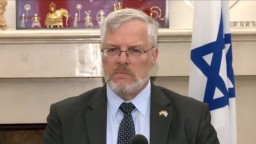Latest News
Call Before U Dig: PM Modi launches app to help prevent uncoordinated digging

New Delhi: Prime Minister Narendra Modi on Wednesday launched a special app called 'Call before u dig', a tool to help prevent damage to underlying assets like optical fibre cables, that occurs because of uncoordinated digging and excavation, leading to loss of thousands of crores every year.
This application will enhance the goal of the prime minister's vision of integrated planning and coordinated implementation of infrastructure connectivity projects under PM Gati Shakti national master plan. Gati Shati National Master Plan is an approach that enables integrated and synchronised implementation of projects. The mobile app will connect excavators and asset owners through SMS/Email notifications and click-to-call so that there are planned excavations in the country while ensuring the safety of underground assets.
The launched app, according to the government illustrates the adoption of a 'Whole-of-government approach' in the governance and ease of doing business.
"It will save potential business loss and minimise discomfort to the citizens due to reduced disruption in essential services like road, telecom, water, gas and electricity," Prime Minister's Office said on Tuesday while announcing the app launch.
Further, Prime Minister Modi today inaugurated the new International Telecommunication Union (ITU) area office and innovation centre in India, besides unveiling the 'Bharat 6G Vision Document' and launching 6G R&D Test Bed.
"Within 6 months of 5G, we are already talking about 6G technology. This shows the confidence of India," PM Modi said.
PM Modi said India will set up 100 5G labs in the coming years.
"For India, telecom technology is not just a mode of power but a mission to empower...India rolled out 5G connections in more than 125 cities within 120 days. India will set up 100 5G labs in the coming years," PM Modi said at the event.
ITU is the United Nations' specialised agency for information and communication technologies (ICTs). Headquartered in Geneva, it has a network of field offices, regional Offices and area offices.
India signed a host country agreement in March 2022 with ITU for the establishment of an area office. India ITU area office will serve India, Nepal, Bhutan, Bangladesh, Sri Lanka, Maldives, Afghanistan and Iran.
"India is a role model for countries that are looking to digital transformation. India is home to one of the biggest startup ecosystems, digital payments market and tech workforce in the world. Under the vision and leadership of PM Modi, Digital India has put the country on the forefront of tech innovation & adaption with game-changing initiatives like Aadhar, UPI and others," Doreen Bogdan, Secretary-General, International Telecommunication Union.
"Innovation in India is happening fast and at a low cost and at a scale never seen before because at the centre is the core principle of inclusive growth which is captured in the mantra of 'Sabka Saath Sabka Vikas'," Bogdan said.
Bharat 6G vision document launched today was prepared by the Technology Innovation Group on 6G (TIG-6G) that was constituted in November 2021 with members from various Ministries/Departments, research and development institutions, academia, standardisation bodies, Telecom Service Providers and industry to develop roadmap and action plans for 6G in India.
6G Test bed will provide academic institutions, industry, start-ups, MSMEs, industry, among others, a platform to test and validate the evolving ICT technologies. The Bharat 6G Vision Document and 6G Test bed will also provide an enabling environment for innovation, capacity building and faster technology adoption in the country.
In India, telecom service providers started providing high-speed 5G services in the country from October 2022 onwards.
The government had issued spectrum allocation letters to telecom service providers in August 2022, asking them to prepare for the rollout of 5G services in the country.
Department of Telecom had received total bids worth Rs 1.50 lakh crore from the 5G spectrum auction.
What is 5G, and how is it different from the current 3G and 4G services?
5G is the fifth-generation mobile network capable of transmitting a large data set at a very rapid speed.
In comparison to 3G and 4G, 5G has a very low latency which will enhance user experiences in various sectors. Low latency describes the efficiency of processing a very high volume of data messages with a minimal delay. (ANI)

.png)


.jpg)



.png)

.jpg)
.png)


.jpg)

.jpg)


.png)

